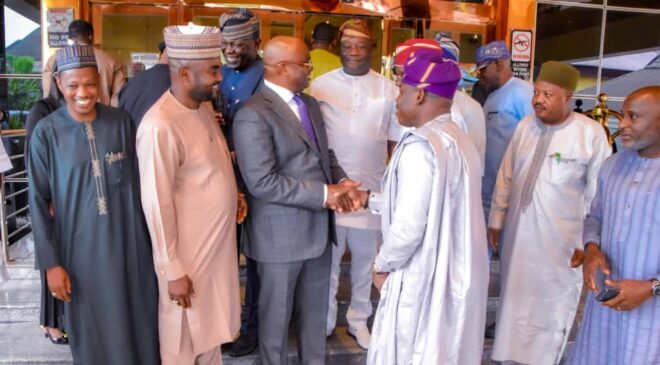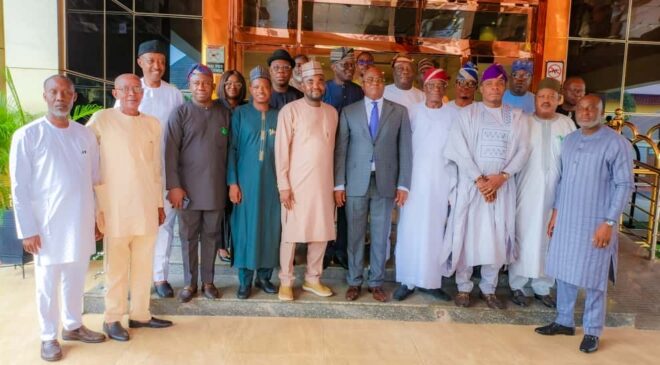
ASABA/Nigeria: Delta State Governor, Rt. Hon. Sheriff Oborevwori, has called for strong legislative support for local manufacturing incentives, infrastructure funding, and skill development policies that align with the Executive’s commitment to policy consistency, ease of doing business, and protection of indigenous industries.
Governor Oborevwori made the call on Monday in Asaba while declaring open a four-day retreat for members and staff of the House of Representatives Committee on Industry, themed “Building a Globally Competitive Automotive Sector in Nigeria through Effective Executive–Legislative Partnership.”
Represented by his Chief of Staff, Hon. Prince Johnson Erijo, the Governor said Nigeria must build a sustainable and globally competitive automotive industry capable of empowering youths, conserving foreign exchange, and promoting national pride.
He emphasized that sub-national governments must complement the Federal Government’s efforts by creating investor-friendly environments through land reforms, simplified approval processes, and strengthened social cohesion.
According to him, under the MORE Agenda of his administration, Delta State is fostering an enabling environment for industries to thrive through massive infrastructure renewal, public-private partnerships, decentralized power distribution, and improved peace and security.
Oborevwori added that Delta’s vibrant and educated youth population positions the state as a hub for industries that generate jobs and facilitate technology transfer.
“Furthermore, Delta State is not only richly endowed in oil and gas reserves but also blessed with vast deposits of kaolin, silica, industrial clay, and other solid minerals that serve as vital inputs for manufacturing and industrial activities, including the automotive sector,” he said.

He noted that the state’s coastal location and four seaports offer significant logistical advantages for component fabrication and export-oriented production. Its strategic position linking the South-South, South-East, and South-West, he added, makes it a natural gateway for commerce, logistics, and industry.
The Governor observed that the automotive industry remains a major global employer and a catalyst for sustainable economic growth, with a multiplier effect that drives innovation in research, petroleum refining, steel production, glass manufacturing, ICT, and other related sectors.
He commended the House of Representatives Committee on Industry and the National Automobile Design and Development Council (NADDC) for their foresight in organizing the retreat, describing it as timely given Nigeria’s drive to diversify its economy and revive local manufacturing capacity.
In his remarks, Chairman of the House Committee on Industry, Hon. Enitan Dolapo Badru, stressed the need for effective Executive–Legislative collaboration to build a globally competitive automotive sector in Nigeria.
Hon. Badru identified funding gaps as a major challenge facing the sector, noting that high interest rates on credit facilities hinder local vehicle manufacturers and potential buyers of both new and used vehicles.
He urged the Central Bank of Nigeria and other financial institutions to provide single-digit loans for investment in the automotive industry to make it globally competitive.
Delivering his goodwill message, Director-General of the NADDC, Mr. Oluwemimo Osanipin, called on the National Assembly to enact policies that will attract investment and strengthen the automotive sector, describing it as pivotal to Nigeria’s industrial and economic advancement.
He emphasized the need for critical stakeholders to understand their roles in developing a strong and competitive automotive industry.
In separate interviews, the Director-General of the Africa Parliamentary Resource Centre, Dr. John Mutu, and the Clerk of the Committee, Dr. Usman Ibrahim, said the retreat would deepen participants’ understanding of NADDC operations and guide the design of practical strategies to achieve its mandate.
They added that discussions would focus on defining the Committee’s role in supporting the NADDC and developing a roadmap to guide its oversight and legislative activities over the next two years.
